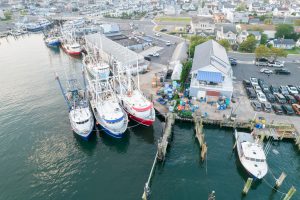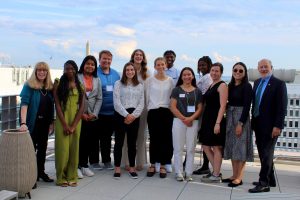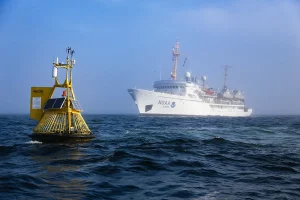LETTERS OF INTENT DUE DECEMBER 15th, 2020
NOAA’s National Sea Grant Office and Ocean Acidification Program provided an overview & answers to FAQs for the recently announced funding opportunity to understand how acidification and other stressors will impact shellfish aquaculture on November 9th at 2pm EST (11amPST). A recording and answers to frequently asked questions be found here: https://seagrant.noaa.gov/Funding
The Ocean Acidification Program and National Sea Grant Office are now accepting letters of intent for projects to bolster understanding of how acidification and other stressors will impact shellfish aquaculture by seeking applications that establish, continue, and/or expand collaborations between researchers and the shellfish aquaculture industry.
Topics suitable under this Notice of Funding Opportunity (NOFO) should aim to:
(1) build or strengthen relationships between the shellfish aquaculture industry and the aquaculture research community (including university, industry, private sector, tribal, state, and/or federal scientists representing diverse perspectives)
(2) develop scientific knowledge on the impact of ocean and coastal acidification in combination with other stressors to shellfish aquaculture; and
(3) create data products, tools, technologies, management practices, or other deliverables that are broadly applicable to building resilience within the shellfish aquaculture sector.
Pending appropriation of funds, NOAA’s National Sea Grant Office and Ocean Acidification Program anticipates awarding between two and six projects totaling $200,000 dollars per year. Projects must be between 1-3 years in duration.
Letters of Intent are due December 15th, 2020. Questions about the content of and information about the status of your submission can be directed to: Attn: Rebecca Certner, Competitions Manager oar.hq.sg.aquaculture@noaa.gov or Erica Ombres (erica.h.ombres@noaa.gov)
Formal Notice of Funding Opportunity on grants.gov





